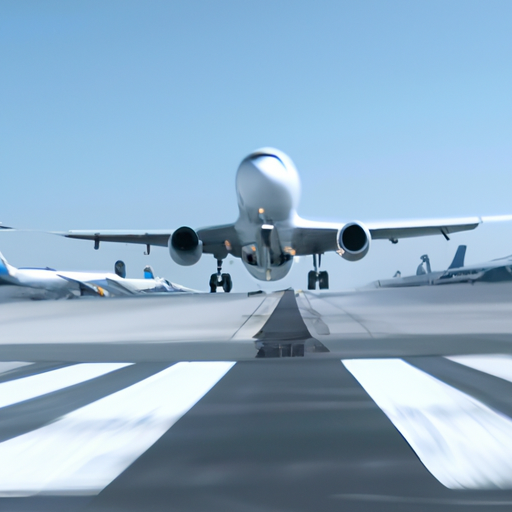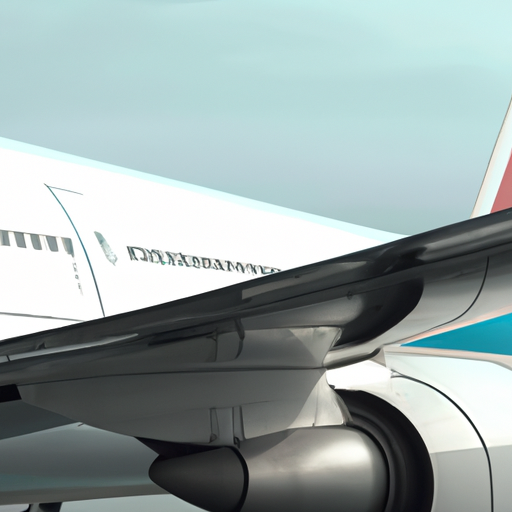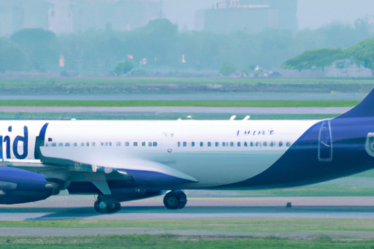
The Importance of Global Alignment in Airport Slot Regulations for Airline Associations
Airline associations around the world are calling for global alignment in airport slot regulations. These regulations play a crucial role in the efficient operation of airports and the smooth functioning of the airline industry as a whole. In this article, we will explore the importance of global alignment in airport slot regulations for airline associations.
First and foremost, it is essential to understand what airport slots are and why they are significant. Airport slots are specific time slots allocated to airlines for takeoff and landing at an airport. These slots are limited and in high demand, especially at busy airports. They are crucial for airlines to plan their flight schedules and ensure timely departures and arrivals.
The current situation regarding airport slot regulations is far from ideal. Different countries and regions have their own set of rules and regulations, leading to a lack of consistency and coordination. This lack of alignment creates numerous challenges for airlines, including operational inefficiencies, increased costs, and reduced flexibility.
One of the main issues faced by airlines is the difficulty in obtaining slots at congested airports. With varying regulations, airlines often find themselves navigating a complex web of rules and requirements. This not only adds to the administrative burden but also hampers the ability to optimize flight schedules and offer convenient connections to passengers.
Furthermore, the lack of global alignment in airport slot regulations also affects competition within the industry. Airlines that operate in countries with more lenient regulations may have an unfair advantage over those operating in countries with stricter rules. This imbalance can lead to market distortions and hinder fair competition, ultimately impacting the overall growth and sustainability of the airline industry.
Another important aspect to consider is the environmental impact of inconsistent slot regulations. When airlines are unable to optimize their flight schedules due to restrictive regulations, it often results in inefficient use of resources, such as fuel. This not only increases costs for airlines but also contributes to unnecessary carbon emissions. By aligning airport slot regulations globally, airlines can better plan their operations, reduce fuel consumption, and minimize their environmental footprint.
Recognizing these challenges, airline associations are urging for global alignment in airport slot regulations. They believe that a harmonized approach will bring numerous benefits to the industry and its stakeholders. Firstly, it will enhance operational efficiency by streamlining processes and reducing administrative burdens. Airlines will be able to optimize their flight schedules, leading to improved punctuality and better connectivity for passengers.
Secondly, global alignment in airport slot regulations will foster fair competition within the industry. By creating a level playing field, airlines can compete based on the quality of their services rather than the regulatory environment in which they operate. This will encourage innovation and drive improvements in customer experience.
Lastly, a harmonized approach to airport slot regulations will contribute to a more sustainable aviation industry. By optimizing flight schedules and reducing fuel consumption, airlines can significantly reduce their carbon footprint. This aligns with the industry’s commitment to environmental sustainability and supports global efforts to combat climate change.
In conclusion, the importance of global alignment in airport slot regulations cannot be overstated. It is crucial for the efficient operation of airports, fair competition within the airline industry, and the sustainability of aviation as a whole. By working together to establish consistent and coordinated regulations, airline associations can pave the way for a more seamless and environmentally friendly future.
How Airport Slot Regulations Impact Airline Operations: Insights from Global Associations

Airline Associations Urge Global Alignment of Airport Slot Regulations
Airport slot regulations play a crucial role in shaping the operations of airlines around the world. These regulations determine when and where airlines can take off and land at congested airports. As such, they have a significant impact on the efficiency and profitability of airlines. In recent years, global airline associations have been advocating for the alignment of airport slot regulations to create a more harmonized and streamlined system.
One of the main challenges faced by airlines is the lack of consistency in slot regulations across different countries. Each country has its own set of rules and procedures, making it difficult for airlines to plan their operations effectively. This lack of alignment often leads to inefficiencies and unnecessary delays, which can have a negative impact on both airlines and passengers.
To address this issue, airline associations such as the International Air Transport Association (IATA) and the Airports Council International (ACI) have been working together to promote global alignment of airport slot regulations. These associations believe that a harmonized system would benefit both airlines and airports by improving operational efficiency and reducing delays.
One of the key benefits of global alignment is the increased flexibility it would provide to airlines. Currently, airlines are often constrained by rigid slot rules that limit their ability to adjust their schedules in response to changing market conditions. By aligning slot regulations, airlines would have more freedom to optimize their operations and respond to market demand in a timely manner.
In addition to flexibility, global alignment would also enhance competition among airlines. Currently, some airports have a limited number of slots available, which gives certain airlines a competitive advantage. By aligning slot regulations, more slots would be made available, allowing new entrants to enter the market and increasing competition. This would ultimately benefit consumers by providing them with more choices and lower fares.
Furthermore, global alignment would improve the overall efficiency of airport operations. Currently, airports often face capacity constraints due to the limited number of slots available. This leads to congestion and delays, which can be frustrating for both airlines and passengers. By aligning slot regulations, airports would be able to better manage their capacity and reduce congestion, resulting in smoother operations and a better travel experience for passengers.
While the benefits of global alignment are clear, implementing such a system is not without its challenges. One of the main obstacles is the need for cooperation and coordination among different countries and stakeholders. Aligning slot regulations would require countries to harmonize their rules and procedures, which can be a complex and time-consuming process. However, airline associations are optimistic that with continued collaboration and dialogue, a global alignment of airport slot regulations can be achieved.
In conclusion, airport slot regulations have a significant impact on airline operations. The lack of alignment among these regulations creates inefficiencies and delays, which can be detrimental to both airlines and passengers. Global airline associations are advocating for the harmonization of slot regulations to improve operational efficiency, enhance competition, and provide a better travel experience for passengers. While challenges exist, the benefits of global alignment make it a worthwhile endeavor. By working together, airlines, airports, and regulatory authorities can create a more harmonized and streamlined system that benefits all stakeholders in the aviation industry.
Addressing Challenges and Opportunities in Global Airport Slot Regulations: Perspectives from Airline Associations
Airline associations around the world are calling for a global alignment of airport slot regulations. These associations, representing major airlines, are urging governments and regulatory bodies to work together to create a standardized set of rules that will benefit both airlines and passengers.
Airport slot regulations are rules that govern the allocation of takeoff and landing slots at airports. These slots are limited resources, and their allocation can have a significant impact on an airline’s operations. Currently, each country has its own set of regulations, leading to a patchwork of rules that can be confusing and burdensome for airlines.
One of the main challenges with the current system is the lack of transparency. Airlines often have to navigate a complex web of regulations and negotiate with multiple authorities to secure the slots they need. This can be a time-consuming and costly process, and it can also lead to inefficiencies in the use of airport capacity.
By aligning airport slot regulations globally, airlines would have a clearer and more streamlined process for securing slots. This would not only save time and money for airlines but also improve the overall efficiency of airport operations. Passengers would benefit from more reliable schedules and better connectivity between airports.
Another challenge with the current system is the lack of flexibility. Airlines are often required to use their allocated slots or risk losing them. This can be problematic when there are unforeseen circumstances, such as bad weather or technical issues, that prevent an airline from operating a flight. In these situations, airlines may be forced to operate empty flights just to maintain their slot rights.
By implementing more flexible regulations, airlines would have the ability to adjust their schedules in response to changing circumstances. This would improve the resilience of the aviation system and reduce the need for unnecessary flights. It would also allow airlines to better respond to passenger demand and offer more convenient travel options.
In addition to addressing these challenges, aligning airport slot regulations globally would also create opportunities for airlines. It would facilitate the growth of new routes and the entry of new airlines into the market. Currently, some airports are heavily congested, making it difficult for airlines to secure slots. By creating a more efficient and transparent system, airports could better accommodate the increasing demand for air travel.
Furthermore, global alignment of airport slot regulations would promote fair competition among airlines. Currently, some airlines have an advantage over others due to preferential treatment or the ability to secure slots at popular airports. By creating a level playing field, airlines would be able to compete based on the quality of their services and the value they offer to passengers.
In conclusion, airline associations are urging governments and regulatory bodies to align airport slot regulations globally. This would address the challenges of the current system, such as lack of transparency and flexibility, and create opportunities for airlines and passengers alike. By working together, stakeholders can create a standardized set of rules that will benefit the aviation industry as a whole.


